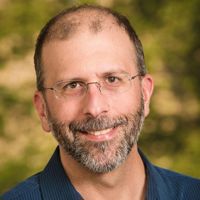Parallels in learning to talk and sing: Social mechanisms of vocal learning in baby humans and songbirds
Tuesday 7th May 2024, 5:00 PM - 7:00 PM (London Time)
How do babies learn to talk? Despite the immense variety of sounds we associate with the animal world, the ability to learn a vocal repertoire is a rare phenomenon, emerging in only a handful of groups, including humans. To gain a better understanding of the development and evolution of vocal learning, we will examine the processes by which birds learn to sing and human infants learn to talk. A key parallel in the vocal development of birds and babies is the social function of immature vocalizations. The responses of adults to the plastic song of birds and the babbling of babies create social feedback that guides the young towards mature vocalizations. I will present experiments demonstrating how the immature sounds of young birds and babies regulate and are regulated by social interactions. The form and timing of these interactions have strong influences on the development of mature birdsong and language. The difficulty of measuring rapid social interchanges organized by immature vocalizing has led many to overlook their importance and assume that young songbirds and human infants learn by passive exposure followed by motor practice. My data indicate that vocal learning is an active, socially-embedded process. By creating feedback that is both inherently informative and socially relevant, structured social interaction boosts the salience of acoustic patterns in the input and facilitates learning of speech and song.
Michael Goldstein
Michael Goldstein is a Professor of Psychology and Stephen H. Weiss Presidential Fellow at Cornell University.

Attend this course for as little as £22 as part of the Voice Professional Training CPD Award Scheme.
Learn MoreSorry, this is an archived short course...
We have plenty of upcoming short courses coming soon. See details of some of them below or look at the full list of short courses.

Thursday 19th February 2026
1:00 PM - 2:30 PM
Thursday 26th February 2026
1:00 PM - 2:30 PM
(London Time)
Performing Pain: Vocal Health in Emotional Roles!

Louisa Morgan
How connected are acted emotions to our real-life emotions? Are they expressed differently? Do they feel different in the body? This 2-part course with Louisa Morgan looks at the potential impact of acted emotion on vocal health, why we should consider it as voice practitioners, and how to care for our performers needing to work with it.


Tuesday 24th February 2026
5:00 PM - 7:00 PM
(London Time)
Incorporating CBT principles within vocal health and voice care

Dr Luke Aldridge-Waddon
Join Dr Luke Waddon as he introduces the principles and techniques within cognitive-behavioural therapy (CBT) in relation to the voice and voice care. He will discuss psychological factors relevant to the development and maintenance of voice disorders and how these might be approached from a cognitive-behavioural perspective. He will describe theoretical concepts and therapeutic components often used within CBT and consider how these might be applied when working with voice users.


Tuesday 3rd March 2026
5:00 PM - 7:00 PM
(London Time)
Sex differences in VOICE!

Dr Richard Lissemore
This two-hour workshop, led by performer, articulatory phoneticist, and voice physiologist, Dr. Richard Lissemore, will examine in detail the role that biological sex plays in the perception and pedagogy of singing voices. We'll consider how parameters such as anatomy, physiology, articulation, resonance, and radiated acoustics influence the perceptions and pedagogical decision-making of singing teachers.
